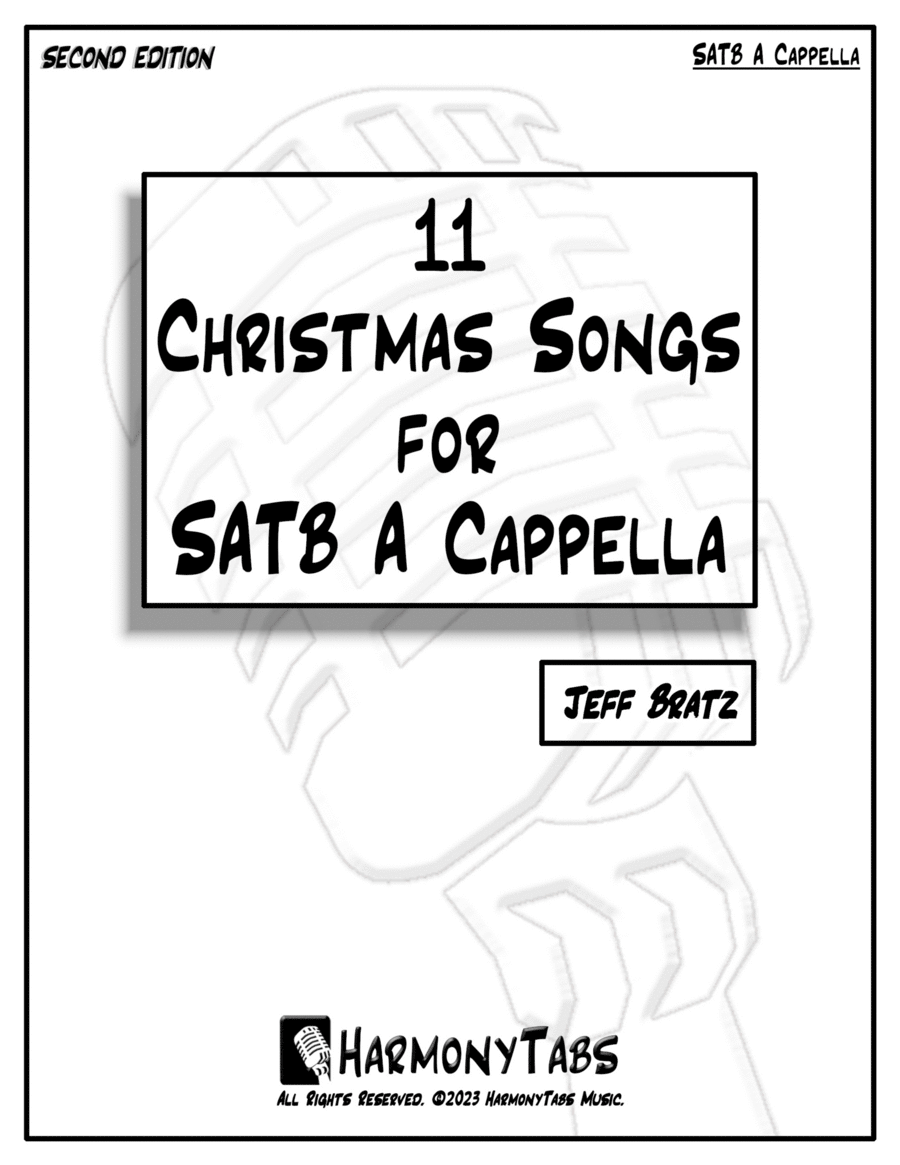C Instrument - Level 3 - Digital Download SKU: A0.1339974 By Jeff Bratz. By George Friedrich Handel, Felix Mendelssohn... Arranged by Jeff Bratz. A Cappella,Christmas,Holiday,Jazz,Traditional. Lead Sheet / Fake Book. 68 pages. HarmonyTabs Music #925637. Published by HarmonyTabs Music (A0.1339974). Dive into the festive spirit with the Second Edition of '11 Christmas Songs for SATB A Cappella.' This collection presents a harmonious blend of classic and timeless holiday melodies arranged for mixed voices. Featuring beloved tunes such as 'Angels We Have Heard On High,' 'Hark! The Herald Angels Sing,' and a tongue-in-cheek 'The Twelve-ish Days of Christmas,' this compilation invites both singers and audiences to experience the joy of the season.With carefully cultivated arrangements, including an abridged 'Hallelujah Chorus,' this edition offers a delightful mix of traditional carols and celebratory songs. Whether you're performing in a choir or simply seeking a cappella arrangements for seasonal gatherings, this collection promises to elevate your Christmas musical experience.Embrace the magic of the holidays with these beautifully crafted renditions that capture the essence of Christmas in every note.Song list: Angels We Have Heard On High, Auld Lang Syne, Away In a Manger, Deck The Halls, Go Tell It On The Mountain, God Rest Ye Merry, Gentlemen, Hallelujah Chorus (Abridged), Hark! The Herald Angels Sing, I Saw Three Ships, The First Noel, and The Twelve-ish Days of Christmas.
